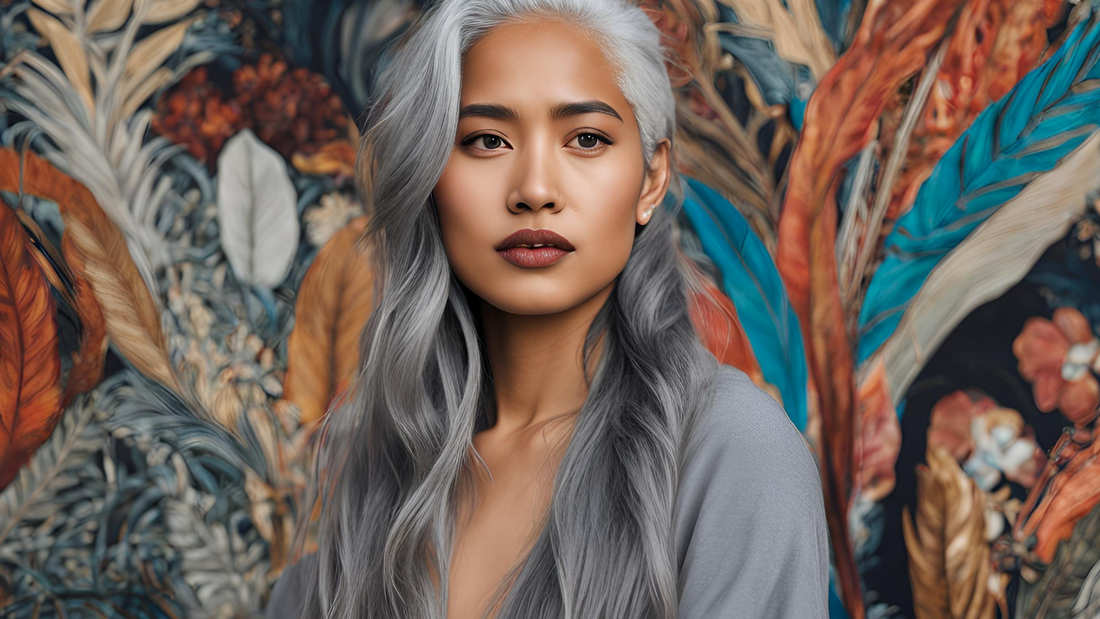
The History of Grey Hair: How Perceptions Have Changed Over Time
Grey hair has long been a symbol of wisdom and aging, but its perception has evolved dramatically over the centuries. From being a mark of status and experience to a target of stigmatization, and now an emblem of self-acceptance and beauty, grey hair has undergone a fascinating transformation in societal attitudes. In this post, we’ll explore the history of grey hair and how its meaning and acceptance have shifted through different cultures and eras.
Ancient Times: A Symbol of Wisdom and Authority
In ancient civilizations, grey hair was often revered as a symbol of wisdom, authority, and experience. In ancient Egypt, elders with grey hair were respected for their life experiences and knowledge. The Greeks and Romans also held similar beliefs. In classical art, philosophers, gods, and heroes were often depicted with flowing grey hair to signify their superiority in knowledge and power.
In some Asian cultures, grey hair has historically been seen as a sign of respect and virtue. In traditional Chinese society, for example, showing respect to elders with grey hair was considered a moral duty. Confucian teachings emphasized the importance of filial piety and reverence for those with grey hair as they embodied family heritage and lineage.
Medieval and Renaissance Europe: Contradictory Views
In medieval Europe, grey hair began to take on more complex meanings. It was still associated with wisdom and authority but also began to symbolize the inevitable decline and mortality. This period saw a conflicting view where grey hair was both respected and feared as a reminder of aging and death.
During the Renaissance, beauty standards started to shift, and youth became increasingly idealized. Wealthy women would dye their hair blonde or wear elaborate wigs to hide any signs of greying, and grey hair was less celebrated. Yet, artists like Leonardo da Vinci and Michelangelo continued to portray elderly figures with grey hair, highlighting their wisdom and spiritual insight.
The 19th and Early 20th Centuries: The Rise of Hair Dye
The invention of synthetic hair dye in the early 20th century marked a turning point in the perception of grey hair. Suddenly, it became possible to conceal grey hair easily, and doing so became a trend. The advent of hair dye, particularly in Hollywood, solidified the association of youthfulness with beauty. Movie stars and public figures rarely appeared in public with grey hair, reinforcing the stigma that grey hair was something to be hidden.
During the 1950s and 1960s, as beauty standards continued to evolve, grey hair was often portrayed negatively, and women, in particular, were encouraged to cover it up to maintain a youthful appearance. Men, on the other hand, were occasionally celebrated for their "distinguished" greying temples, a double standard that persisted for decades.
In recent decades, however, attitudes towards grey hair have started to change. The rise of the natural beauty movement and a growing rejection of traditional beauty norms have led to a resurgence in the acceptance of grey hair. Celebrities like Jamie Lee Curtis, Helen Mirren, and George Clooney have proudly embraced their natural grey, helping to shift public perception.
In the 2020s, the “grey hair movement” gained even more momentum, with social media influencers and everyday people sharing their journeys of transitioning to natural grey hair. Grey hair is no longer seen solely as a sign of aging but as a bold and beautiful statement of self-acceptance and individuality.
Final Thoughts
The history of grey hair is a testament to changing beauty standards and societal values. Once a symbol of wisdom and authority, grey hair has been stigmatized, hidden, and now finally embraced as a natural and beautiful part of life. Today, people of all ages are choosing to embrace their grey, celebrating it as a unique expression of who they are. The evolving perception of grey hair reminds us that true beauty is timeless and that embracing ourselves as we are is the ultimate form of self-expression.
-------
Manhattan Grey is a line of premium moisture products formulated for textured grey hair. Our signature products are a lightweight pomade and hydration oil help to eliminate dryness, prevent breakage, and sooth itching. It’s also safe to use on our skin and facial hair.
We are committed to giving our customers, who have been largely overlooked by the beauty and personal care industry, a product experience that offers premium hair care products uniquely blended to address the challenges of grey or greying hair.
Click here for 20% off your first purchase
Subscribe to our YouTube channel


